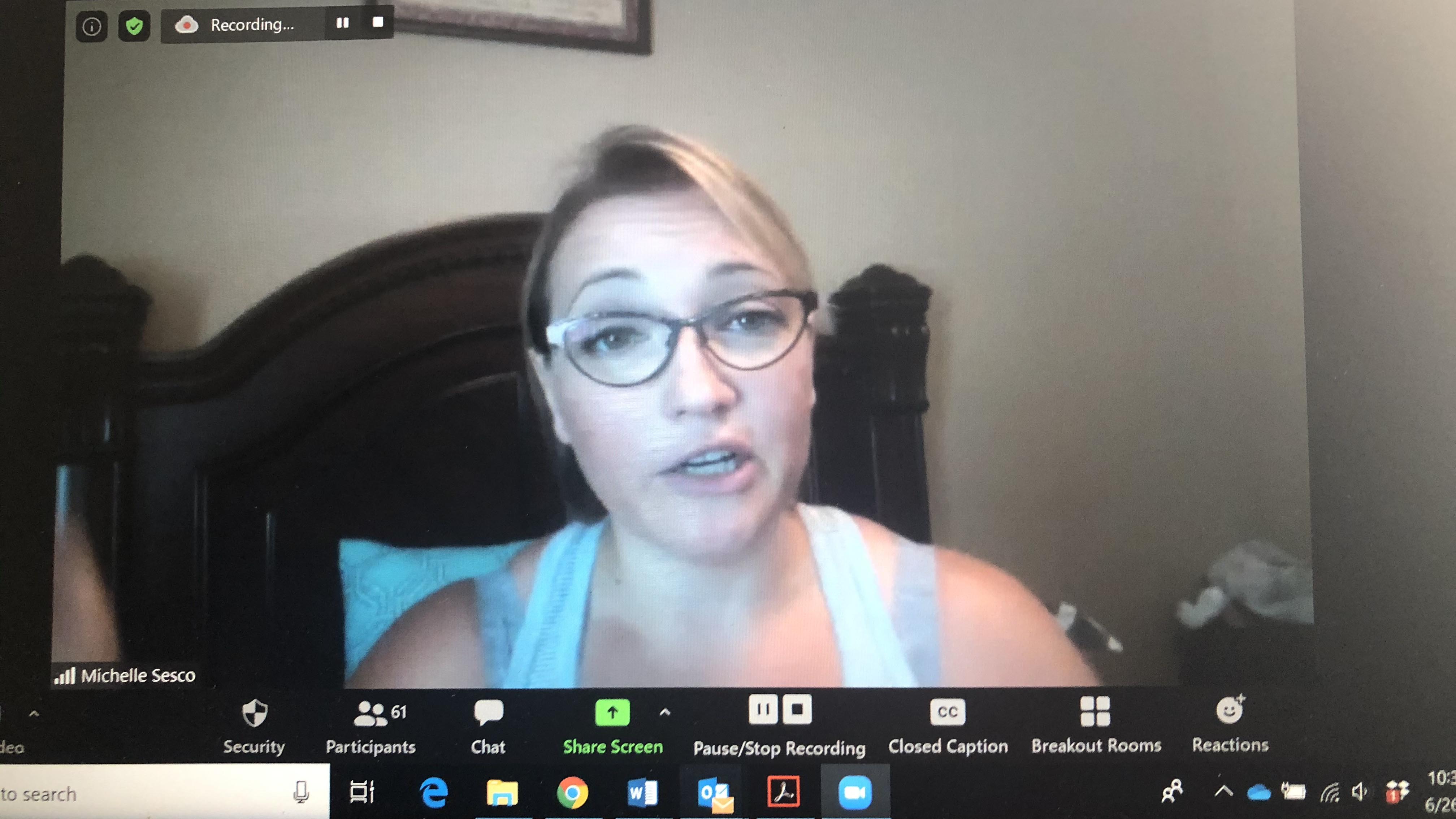The annual Upward Bound Summer Academy at Cal U goes virtual this year.

Cal U theater alumna Michelle Sesco addresses the Summer Academy students via Zoom.
From lessons in Finnish to career advice from Broadway to science experiments using household items, education has not taken the summer off for students in the Upward Bound Summer Academy.
Nearly 60 students from nine area school districts are meeting for six weeks for the 2020 TRIO Upward Bound Summer Academy. Normally held as a residential experience at Cal U, this year’s academy is being held virtually during the COVID-19 pandemic.
“This year’s theme is ‘Virtually Unstoppable,’” said Jennifer Ramsey, director of the TRIO Upward Bound Program at Cal U. “It’s quite fitting because we transitioned online quickly in the spring, and it’s been nonstop ever since.”
Upward Bound is a nationwide, federally funded TRIO program that has been offered at Cal U since the 1966-1967 academic year. It targets students from families where neither parent has a college degree, or where household income falls within federal guidelines.
The program provides services such as tutoring, study skills and career courses, college and career planning services, help with financial aid applications.
Students range from ninth-graders to those who will begin college this fall.
The Fayette Project serves up to 93 students in five school districts. The Monongahela Project serves up to 63 students per year from four school districts.
During the school year, Upward Bound students meet weekly with Cal U faculty and students who provide help with tutoring and study skills. They also meet Cal U professors and learn about academic programs.
“We highly encourage students to participate in the Summer Academy because it provides continual academic support and students are introduced to science and math concepts that they will have in the upcoming school year,” Ramsey said.
This year, students are learning about the Scandinavian culture and hearing from career professionals during the new virtual work-study experience.
Michelle Sesco, a 1998 graduate of Cal U, talked to the Upward Bound students about her career backstage on Broadway. She works as a dresser — the one who ensures a character can dash off stage to change costumes and never miss a line.
“Everyone wants to be an actor,” she said of students who may be considering a career in theater.
“But being an actor is the hardest thing to do in this business. I fell into this career and I love it, and there are literally hundreds of jobs backstage that they could do.”
Eron McMillen, a counselor and instructor in the Upward Bound program, also arranged for students to hear from a chef who works at Walt Disney world.
Codie Stone, an assistant professor of sociology at Cal U, prepared three sessions for the Upward Bound students.
“I want to introduce them to critical thinking and sociological thinking,” he said. “What does it mean to think beyond common sense in our personal and professional decisions. I want to expose them to the kind of conversations that we have in college but also provide something they can take with them now.”
Stone, who grew up in a single-parent home, said he is impressed with the Upward Bound program.
“I feel a connection to it,” he said, “and it’s a program I want to support. It’s important for the students to know that university faculty are not ‘scary.’ I’m here to facilitate learning. My job is to help and to provide clarification.”
For the Upward Bound faculty, it’s been a learning experience.
“We’re going to try to hold a virtual banquet,” Ramsey said, to honor the 2020 class of students.
“We are also coming up on a new grant cycle for Upward Bound, and we are thinking of ways to altering the program moving forward. We were thinking of doing some of these things virtually, anyway, and now we have had a chance to see if they work.
“Our Bridge students typically work before college and can’t always participate in the residential experience, so if we can transition them to participate virtually, that’s going to be a win-win for everybody.”
